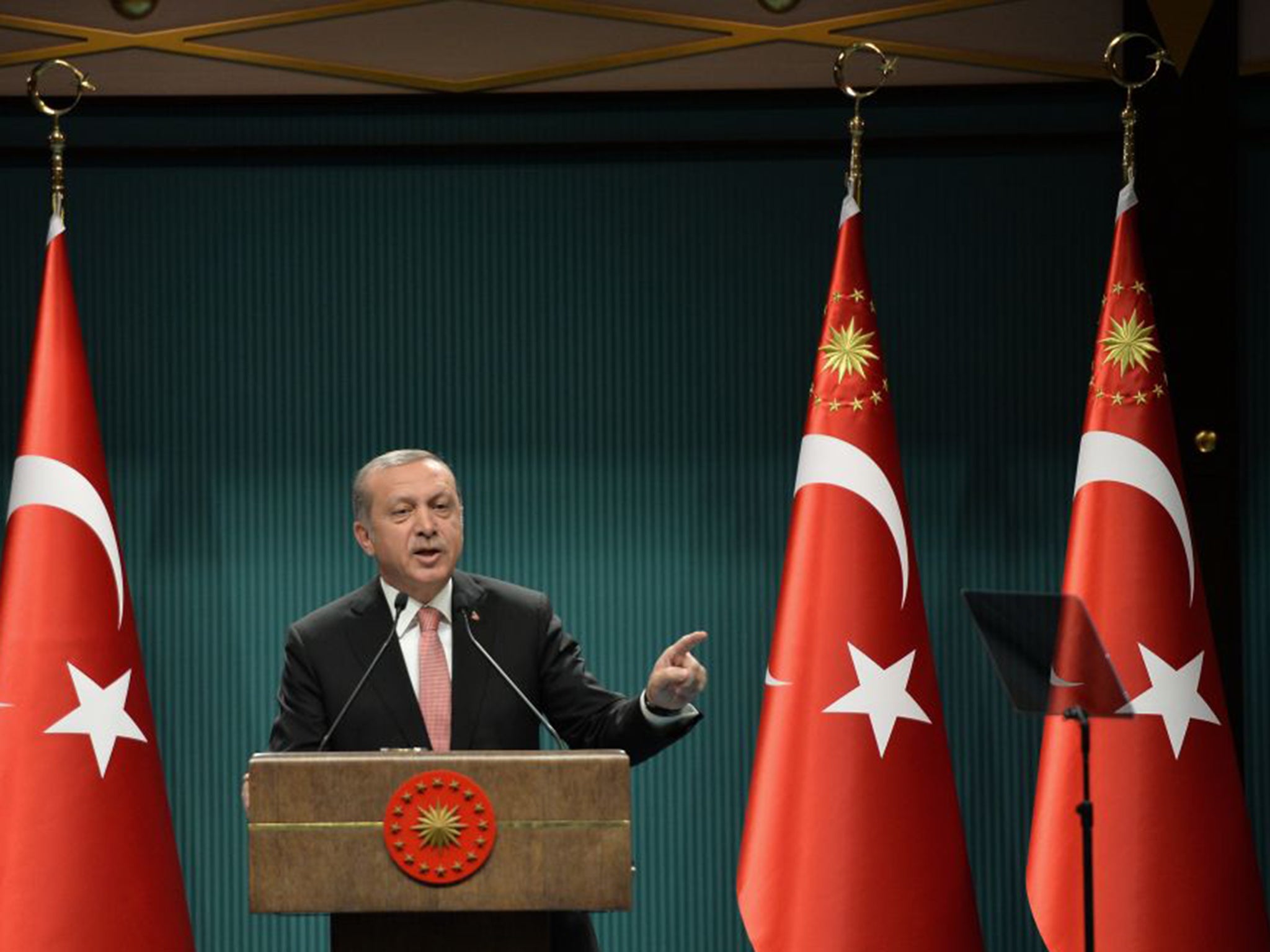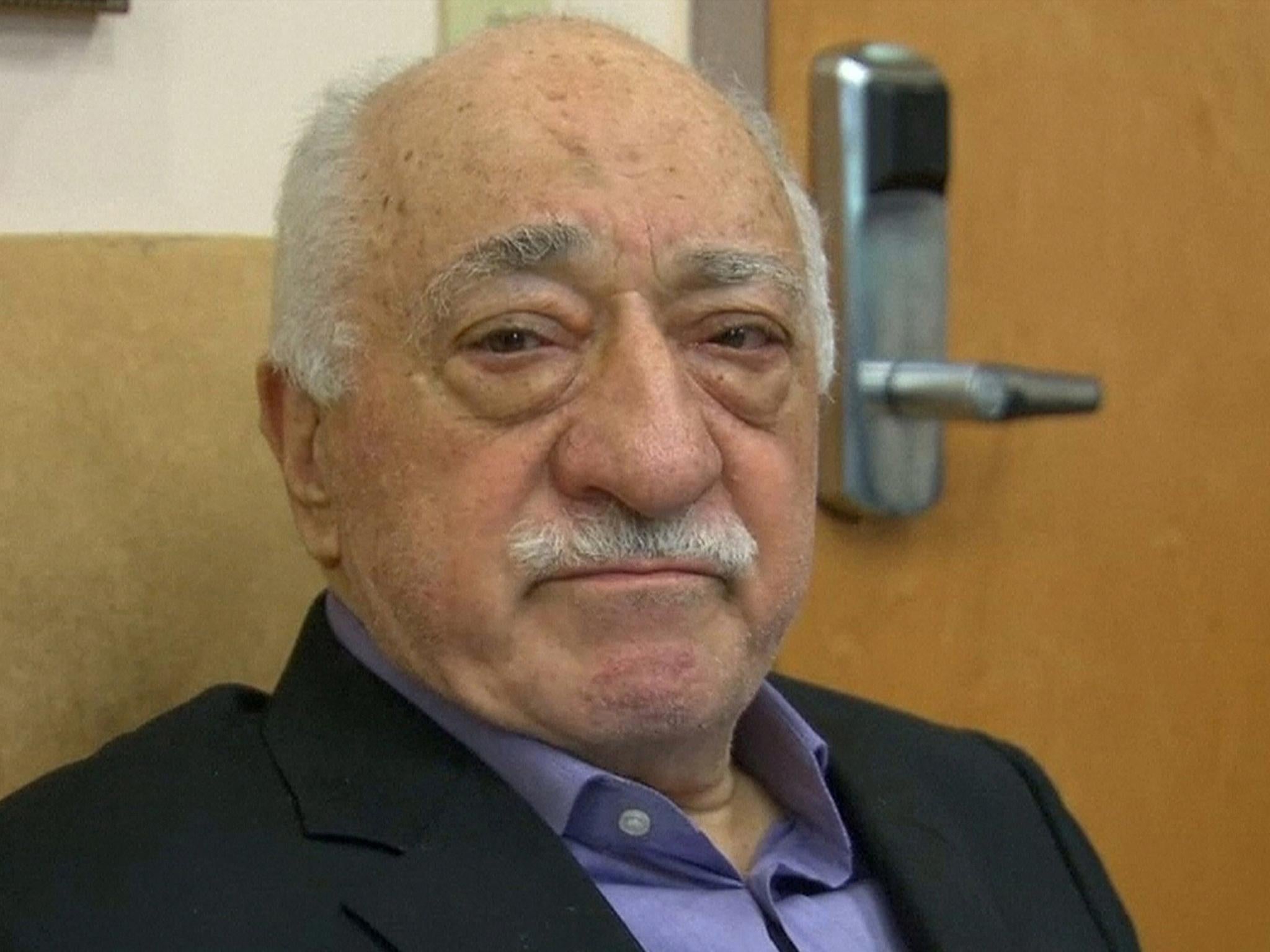Turkey seeks up to 15 years’ jail for licence holder of coup-related app
A Turkish-US national has flown to Turkey to turn himself in

Your support helps us to tell the story
From reproductive rights to climate change to Big Tech, The Independent is on the ground when the story is developing. Whether it's investigating the financials of Elon Musk's pro-Trump PAC or producing our latest documentary, 'The A Word', which shines a light on the American women fighting for reproductive rights, we know how important it is to parse out the facts from the messaging.
At such a critical moment in US history, we need reporters on the ground. Your donation allows us to keep sending journalists to speak to both sides of the story.
The Independent is trusted by Americans across the entire political spectrum. And unlike many other quality news outlets, we choose not to lock Americans out of our reporting and analysis with paywalls. We believe quality journalism should be available to everyone, paid for by those who can afford it.
Your support makes all the difference.The licence-holder of an app could be imprisoned in Turkey for up to 15 years over its alleged role in an attempted military coup.
Authorities believe that the encrypted messaging app ByLock had facilitated an attempted overthrow of the government in July 2016, in which at least 250 people were killed and more than 2,000 were injured.
Turkish-born app licensee David Keynes flew to Istanbul on 9 June to turn himself in, after a warrant had been out for his arrest since December 2020. He changed his name from Alpaslan Demir when he took up US citizenship in 2011.
While in custody, he has asked to take advantage of “remorse laws” under which suspects who co-operate with authorities can receive lighter sentences, according to Turkish state-owned news agency Anadolu.
Turkish media has described Keynes as a “senior member of the Fetullah Terrorist Organization (FETO)”, for which he could serve between seven and 15 years in prison. No trial date has been set.

Since the coup attempt, Turkish authorities have cracked down on the network of Fethullah Gulen, a Muslim cleric in exile in the US whose FETO organisation has a large following in Turkey, including among military officers and civil servants.
President Recep Tayyip Erdogan blamed Gulen and FETO – proscribed as a terror group in Turkey since 2016 – for the attempted coup.
Hundreds of thousands of people – mainly soldiers, teachers, journalists, and public sector workers – were sacked, suspended or arrested for alleged ties to Gulen, or for having the ByLock app on their phone.
The government has banned ByLock, saying Gulen’s followers had used it to communicate on the night when a group of soldiers attempted to overthrow the government.
Arrests of suspected Gulen supporters still happen five years later.
Authorities have alleged that Gulen had asked Keynes to have the app developed so that FETO members and supporters, mainly those involved in the attempted coup, could communicate in secret via encrypted messages, according to Turkish newspaper Daily Sabah.
Gulen has condemned the coup and has denied any involvement.

Rights groups raised concerns over the crackdown on the app’s users, saying that Erdogan has used the attempted coup as an opportunity to quash dissent.
The European Court of Human Rights (ECtHR) ruled last week, in the case of former police officer Tekin Akgun, that uing the ByLock app is not an offence in itself and does not constitute sufficient evidence for arrest.
Under Article 90 of the Turkish Constitution, local courts and top appeals courts must comply with the ruling, must release people under arrest pending trial and acquit others convicted based on their use of ByLock – according to the Stockholm Center for Freedom.
About 95,000 people arrested or convicted on terrorism charges due to their alleged use of the ByLock app expect to be acquitted based on the recent ECtHR ruling, news website Turkish Minute reported.
Erdogan’s government has said the security measures were proportionate to the threat of subversion that Turkey has faced.
Join our commenting forum
Join thought-provoking conversations, follow other Independent readers and see their replies
Comments